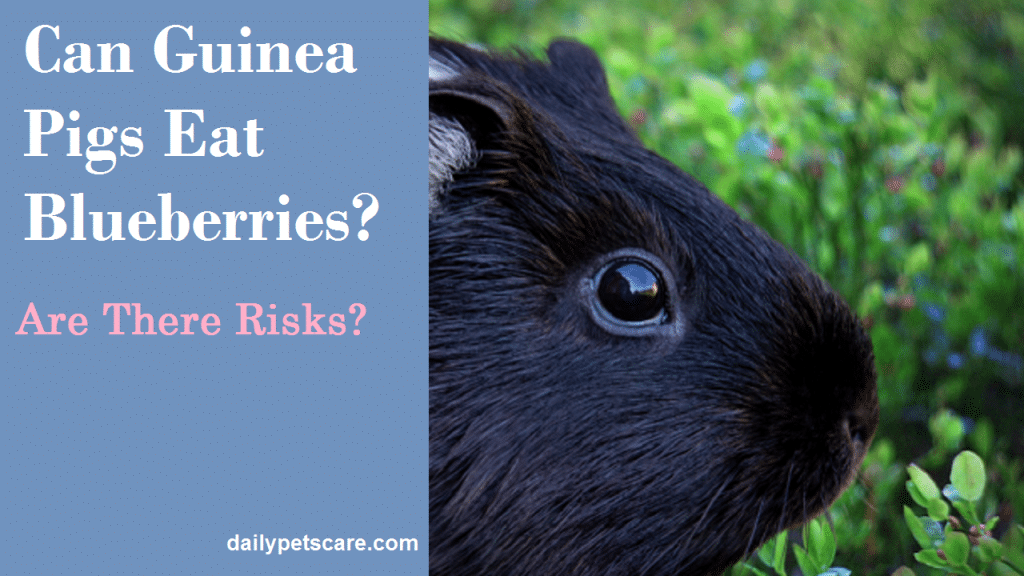Are you here because you’re wondering, can guinea pigs eat blueberries? You’re on the right page because I’ll comprehensively address your concerns.
Yes, guinea pigs can eat blueberries. Blueberries are great for your guinea pigs because they’re rich in vitamins and antioxidants. However, blueberries also contain lots of sugar and acid. Some guinea pigs might have mouth sores after eating blueberries, so precaution is necessary when feeding guinea pigs blueberries. However, let your piggy have only one to two blueberries a day.
While hay is the primary food of guinea pigs, vegetables and fruits such as blueberries are equally vital for your piggy. This article will focus on more health benefits of blueberries to guinea pigs, how much is enough for them, and more.
Grab your coffee mug, relax, and keep reading as I explore this subject.
Can Guinea Pigs Eat Blueberries?
Guinea pigs eat blueberries in small quantities. These delicious blueberries are sweet, so guinea pigs love eating them.
Like strawberries, guinea pigs contain vitamin C, phosphorus, and calcium.
Since your pig guinea can’t synthesize its own vitamin C, you must give them blueberries so that they can get enough of it for a strong immune system.
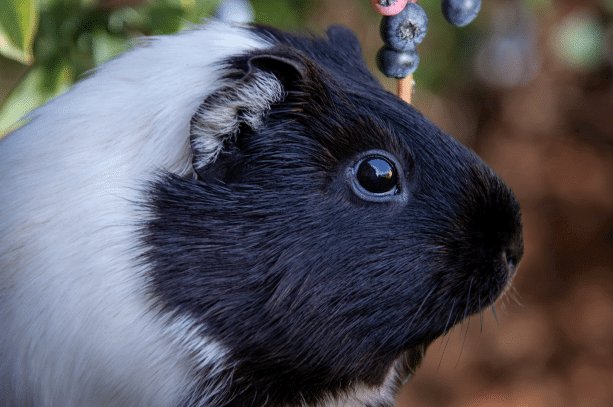
Besides, vitamin C also prevents the development of scurvy in guinea pigs.
On the other hand, phosphorus and calcium found in blueberries are necessary for a healthy nervous system and the development of strong teeth.
Blueberries are great for guinea pigs because they are rich in potassium, which is excellent for strengthening the immune system and the insusceptible framework. Also, they help in the creation of body tissues.
Guinea pigs should also eat blueberries to benefit from the antioxidants, which help strengthen the immune system.
Like the delicious and sweet broccoli guinea pigs love, blueberries are rich in protein and fiber.
The fiber in blueberries is essential in boosting the digestive health of your piggy. This dietary fiber is also essential in boosting the health of the pig’s gut.
These, however, aren’t the only nutrients blueberries contain. Below is a table showing the nutritional value of blueberries. Keep reading.
| Nutritional | Value of 100 grams |
| Protein | 0.74 g |
| Fiber | 2.4 g |
| Calcium | 6 mg |
| Carbs | 14.49 g |
| Potassium | 77 mg |
| Sugar | 10 g |
| Water | 84.21 g |
| Phosphorous | 12 mg |
| Vitamin K | 19.3 ug |
| Calories | 57 Kcal |
| Vitamin A | 54 IU |
| Vitamin C | 9.7 mg |
How Many Blueberries Should a Guinea Pig Eat a Day?
Don’t feed guinea pigs blueberries daily. According to our nutritional value table above, these delicious treats have sugar. Sugar causes dental problems in pet guinea pigs. Worse still, it could heighten the chances of getting type-2 diabetes.
So, though the fruits have many health benefits for your guinea pigs, they can't have them daily.
If you've not given your piggy these delicious and nutritious fruits in the past, start with only 1 berry.
Watch what happens to his health for the next 1 to 2 hours. Does he have diarrhea, become inactive, or have mouth sores? If so, your guinea pig is allergic to blueberries, discontinue feeding him.
You can comfortably give your piggy a few berries a week without adverse reactions.
Even so, research shows that some wild blueberries could be low in sugar. Such could be safer for your pig to feed on in slightly larger quantities.
Possible Risks of Blueberries to Guinea Pigs
Regardless of how much these delicacies are packed with beneficial nutrients for your pet guinea pig, they could cause health problems, which include:
Difficulty in Digesting
Like the mouth, guinea pigs have sensitive stomachs. Though dietary fiber is vital for the digestive system of your piggy, too much of it could cause stomach problems, gas, and diarrhea.
Mouth Sores
This article mentions that guinea pigs could have mouth sores if they feed on too many blueberries. For some, though, it’s not about quantity; it’s all about their bodies. All guinea pigs aren’t the same. Hence, some could develop sores after eating only 2 berries. That means your piggy is allergic to the fruit; altogether, discontinue giving it to him.
Obesity and Diabetes
As I have mentioned, blueberries are rich in sugar, which isn’t good when taken in high amounts by guinea pigs.
Aside from tooth decay, sugar could also make your piggy obese. This further causes other problems, for example, diabetes.
Therefore, as much as you want to impress your guinea by giving him treats, remember there could be severe health problems if they feeds on too many berries.
Other problems associated with giving guinea pigs too much berries include:
- Hives
- Lethargy
- Swelling
- Breathing challenges
If you see any of the above issues after feeding your piggy the delicacy, please discontinue, as he could also die. It would also be great to consult your veterinarian immediately after noticing these issues for further advice.
Are Blueberries Healthy for Guinea Pigs?
Yes, blueberries are healthy for your guinea pigs because they contain vital nutrients for their health.
Giving guinea pigs vegetables, such as raw broccoli and hay, and fruits, such as blueberries, makes their diet balanced.
However, to ensure that your piggy benefits from all the health benefits of blueberries, it’s essential that you prepare them with lots of love. Here’s what you need to do:
Wash the berries: Thoroughly wash and rinse the berries under running water. Like strawberries, blueberries may contain pesticides and dirt, which could cause health complications in guinea pigs. That’s why it is better to grow your own organic blueberries for the safety of your piggy.
Cut out the stems and leaves: Cut them off unless you want to give them to your piggy. Nevertheless, these parts might contain a lot of dirt and pesticides that need more time to wash out. Consequently, your piggy could have complications if not thoroughly cleaned.
Cut the berries into small pieces: Berries are small in size. However, guinea pigs can be greedy at times. They’re likely to swallow them whole, which could make it hard for them to digest the delicacy. Therefore, avoid aftermath problems by cutting the berries into small pieces so that they get appropriately digested if he swallows them whole.
Can Guinea Pigs Eat Blueberry Leaves?
Your pet guinea pig can eat blueberry leaves if you clean them thoroughly, especially if they’re not organically grown. It's safer to give him the blueberry leaves is safer as they’re low in sugar. That’s not to say that they’re not tasty.
They are tasty and healthier as they contain fewer calories. They also have higher antioxidants than the fruits.
Since they have less sugar and calories, you could feed your piggy blueberry leaves at least three times a week, unlike the fruits, which should be given in lesser quantities.
Can Guinea Pigs Eat Blueberry Stems?
Like the leaves, pet guinea pigs can eat blueberries. However, like the sweet strawberries, thoroughly wash the stems as they could contain a high amount of pesticides and dust. Hence causing health problems in your pet.
Blueberry stems are great for your pet guinea pig because they’re easy to eat due to their softness.
On the other hand, since the stems are long, your piggy will stay busy chewing them, stopping the teeth's constant growth.
This benefits your guinea pigs because they get mouth injuries when their teeth grow excessively. Therefore, often giving guinea pigs blueberry leaves is healthy and highly beneficial to them.
Can Guinea Pigs Eat Dried Blueberries?
Dried blueberries are not safe for your piggy as they may contain additives. These additives could cause more harm than good in a pet guinea pig. On the other hand, dried blueberries contain more sugar than the fresh berries.
Consequently, even though your piggy comfortably feeds on 2 to 3 berries a day, the same quantity of dried blueberries could be deadly due to high sugar content.
Hence, avoid dried berries entirely.
Can Guinea Pigs Eat Frozen Blueberries?
Frozen blueberries are hard to chew and digest. Hence, your piggy could choke when he feeds on frozen berries. In addition, a guinea pig’s stomach could have problems digesting the frozen berries.
Though frozen blueberries have a higher amount of antioxidants, they could cause serious health problems such as bloating and constipation.
However, if you have frozen blueberries in the house, don’t throw them away. Simply thaw them and give them to your piggy in the recommended amounts: 1 to 2 berries daily.
Once thawed, the berries become easy to chew and digest.
Can Guinea Pigs Eat Blueberry Muffins?
Blueberry muffins, like blueberry pancakes, fall in the cooked food category, which isn’t ideal for guinea pigs’ digestive systems. So, whether you want to treat your guinea pig or give him blueberry muffins for fun, avoid them; they could cause severe problems in his stomach.
If you want to treat your piggy, please give him fresh blueberries in small quantities, as discussed in this article.
Can Baby Guinea Pigs Eat Blueberries?
Baby guinea pigs can eat blueberries if they’re four weeks or older. However, like with adult guinea pigs, always be careful with how much you give your baby piggy.
Why?
Baby guinea pigs have a more delicate stomach and mouth because they’re still in the development stage.
Therefore, start by giving only 1 berry a day to your baby guinea pig to see if he develops any health complications.
If the high sugar content and the acid in blueberries don’t cause problems, then continue feeding your young piggy 1 to 2 berries a week.
Nevertheless, blueberry leaves are safer and highly nutritious.
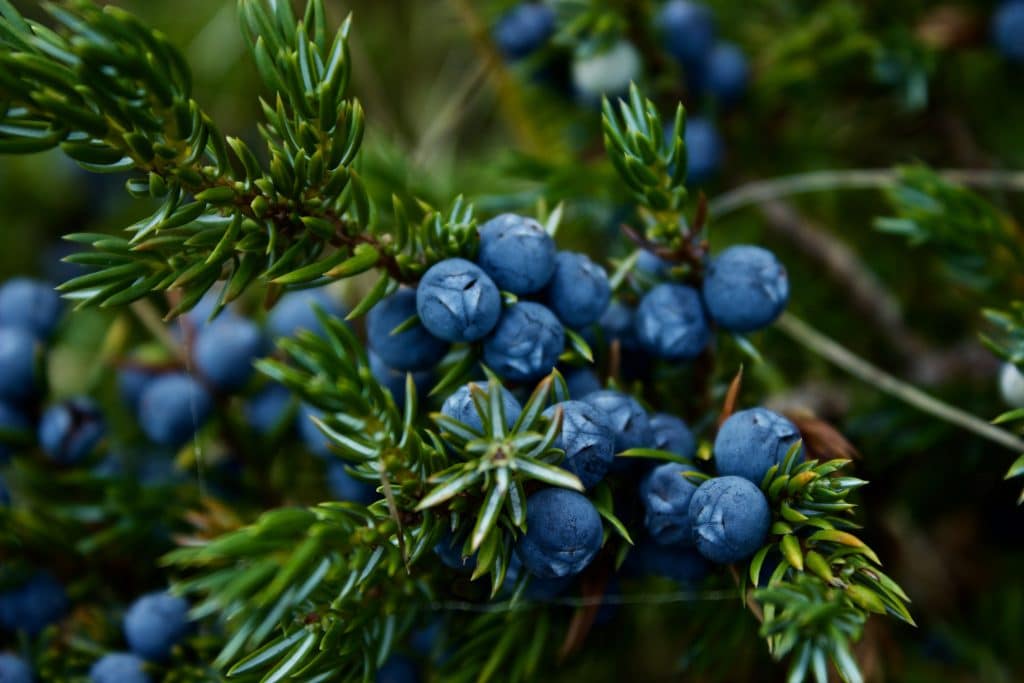
Hence, they're a better option for your baby guinea pigs. When dealing with baby pet guinea pigs, kale, parsley, and dandelion are even better healthwise.
Why so?
Baby guinea pigs need more vitamin C and calcium during their growth stages so that their bodies can grow and develop properly. The kales are rich in these nutrients, so let the babies feed on them.
Fruits and Vegetables: Blueberry Alternatives for Your Guinea Pigs
Though hay is the best and recommended diet for guinea pigs, fruits and vegetables are also vital.
This is because fruits and veggies contain vitamins and minerals, which aid in the growth of your piggy.
However, since all fruits and some veggies contain sugar and high fiber, always give the recommended amount. When you start feeding him foods rich in sugar and fiber, it's always what he needs, not what he wants.
With this in mind, below are some blueberry alternatives. Like the blueberries, these fresh fruits and vegetables should be eaten raw.
Fruits
Below are some of the fruits you should feed your piggy in small portions if you’re looking for an alternative to blueberries.
However, at all costs, avoid dried fruits sold in stores as they could have added sugar, which could adversely affect the health of your pig.
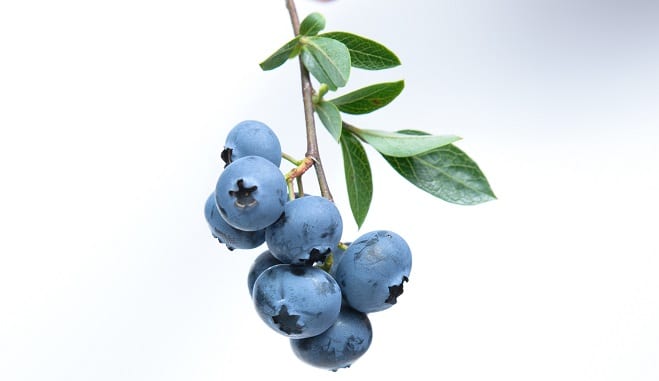
Also, no additives are safe for guinea pigs as they could cause blood sugar problems. Do also avoid frozen fruits; serve fresh fruits.
So, which are some of the fruits you should consider?
Apples
If you’re looking for the best fresh fruit alternative, apples are safe for guinea pigs if you remove their seeds before feeding them.
Apples are a great source of vitamin C and fiber, which is what boosts the growth and development of your piggy. This means your piggy should have an apple once in a while.
Nevertheless, apples are high in fiber and sugar, like strawberries and blueberries. Thus, strictly follow the dietary guidelines when serving them.
Kiwi
Like the strawberries and apples, Kiwi is rich in vitamin C. However, this sweet delicacy also contains sugar and fiber and thus should only be given to guinea pigs in moderation.
For the sake of the health of your piggy, only give him a slice of Kiwi once in a while.
Strawberries
I have mentioned that strawberries are a healthy-eating treat for guinea pigs.
A health study shows that as long as strawberries are given in moderation, your guinea pig will be healthy.
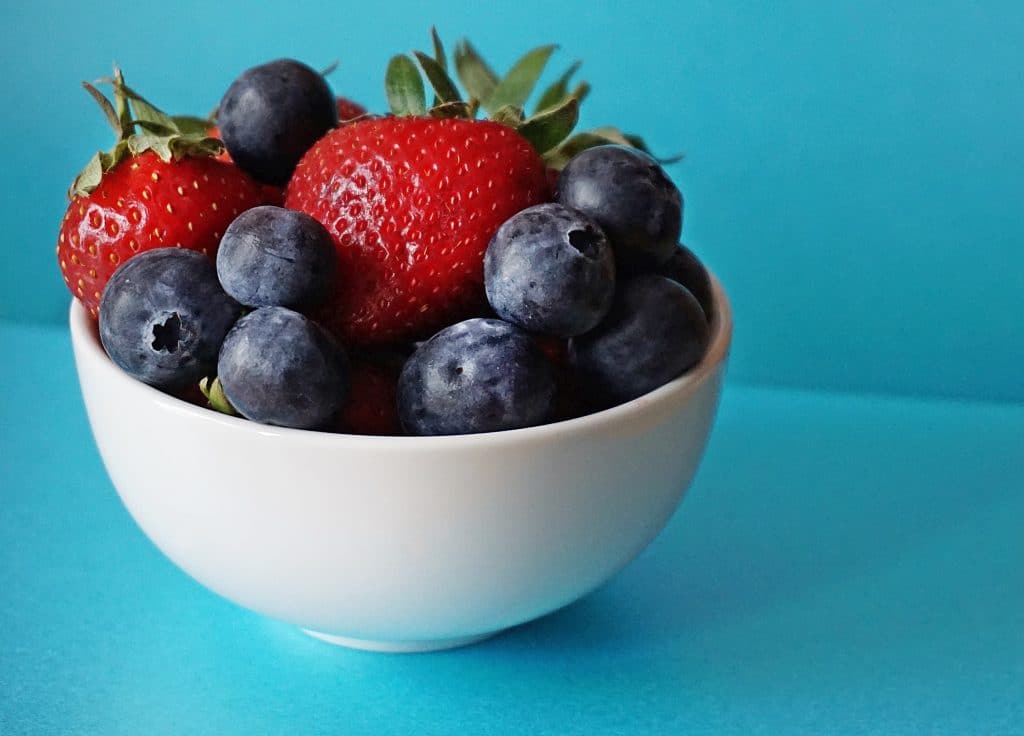
Strawberries are great because they are rich in vitamin C, which is excellent as it contributes to the growth of guinea pigs.
Vegetables
Though vegetables may contain some calories, they are lower than most other foods. Besides, unlike fruits, vegetables contain less sugar, which is why your piggy should eat more veggies than fruits.
Here are some of the veggies you should give your piggy.
Bell Peppers
Guinea pigs need vitamin C for their normal growth. Bell peppers are a rich source of vitamin C.
They’re also rich in potassium, Vitamins E, A, K1, and folate. These are definitely beneficial for pet guinea pigs, especially the young ones.
Cucumbers
Cucumbers may not have a high nutritional value, which could benefit your pet. That is why they should not make a high part of your pig’s diet.
Nevertheless, they have a lot of water. So, yes, giving your pet this veggie as a treat once in a while is a great thing.
Romaine Lettuce
Your piggy is at a lower risk when he feeds on romaine lettuce because it is easy to digest. So, he will unlikely have constipation and other digestive issues after eating it. Besides, lettuce is rich in minerals and vitamins that are excellent for guinea pigs.
Carrots
If you’re looking for a veggie you could give your pig several times a week, think of a fresh carrot. Fresh carrots are rich in vitamins. Sadly, they also contain a lot of sugar, which could harm your piggy’s digestive system.
In this regard, small portions of carrots are great for guinea pigs a few times a week.
Parting Shot
Guinea pigs can eat blueberries, though in small quantities. Not only will they enjoy this treat due to its sugar content, but healthwise, they’ll benefit from it. This is because blueberries are rich in calcium, dietary fiber, phosphorus, carbs, protein, and vitamins K, C, and A, which all help boost the growth of guinea pigs.
Because of these nutrients, your piggy will have strong teeth of a good size and an excellent digestive system.
Even so, there’s the dark side of blueberries; they could cause constipation, other digestive problems, and tooth decay when given to your piggy in large quantities. In addition, some guinea pigs could develop mouth sores if they’re allergic to the fruit.
So, introduce the fruit cautiously, not in large quantities, so that you can observe the reactions of your piggy 12 to 24 hours after feeding him.
If your piggy has no health complications after having a bite or two of the fruit, you can give him about 1 to 2 berries a day.
Are you a guinea pig parent? What’s your answer based on your experience? Can guinea pigs eat blueberries?
